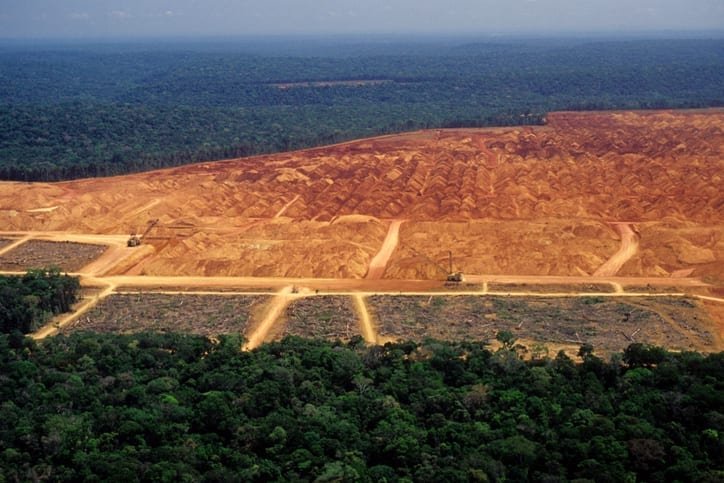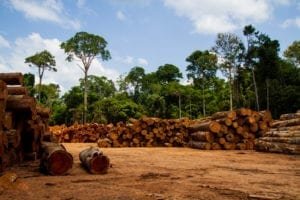A total of 43 million hectares – an area twice the size of the UK – has been lost to deforestation in just over a decade, a new WWF report reveals.
The most recent data links 10% of global deforestation to EU demand for products like beef, soy for animal feed, leather, coffee, cocoa, rubber and palm oil.
‘Deforestation fronts: Drivers and responses in a changing world’ analysed 24 ‘deforestation fronts’, or hotspots, across 29 countries in Asia, Latin America and Africa.
It found that more than 43 million hectares of forest were lost in these areas over a 13-year period.
The report found that deforestation was taking place at the fastest rates in the following nine locations: the Brazilian Amazon and Cerrado, the Bolivian Amazon, Paraguay, Argentina, Madagascar, and Sumatra and Borneo in Indonesia and Malaysia.
Land cleared for soy
A large proportion of the EU’s soy imports come from the Brazilian Cerrado, home to 5% of the world’s biodiversity.
Land there has been rapidly cleared for cattle and soy production, resulting in the loss of a third (32.8%) of its forest area between 2004 and 2017.
The EU remains the second-largest market for Brazilian soy after China, and EU soy imports are more likely to be tainted by deforestation.
WWF is calling for Covid-19 and its negative impacts across the globe to serve as a trigger for greater action to safeguard the world’s forests and other natural ecosystems.
At the EU level, WWF is advocating for a strong new EU law to stop products linked with deforestation and nature destruction from entering European markets.
‘Rampant deforestation in the tropics and subtropics may seem a world away, but Europe’s rising demand for products like beef, soy, cocoa and palm oil is adding fuel to the fire. The EU can and must stop being part of the problem.
‘Right now, the European Commission is drafting a proposal for an EU deforestation law. We – together with more than one million citizens who have raised their voice, and 160+ environmental groups – will be there every step of the way to ensure that such a law is strong, ambitious, and ensures the EU plays its part in protecting the world’s forests, grasslands and wetlands.’
ANKE SCHULMEISTER-OLDENHOVE
Senior forest policy officer at WWF’s European Policy Office
 Play Video about This Rock Might Just Save The World
Play Video about This Rock Might Just Save The World Play Video about Play 2 hours of rock
Play Video about Play 2 hours of rock Play Video about Play 2 hours of brook
Play Video about Play 2 hours of brook Play Video about Play 2 hours of sheep
Play Video about Play 2 hours of sheep














































